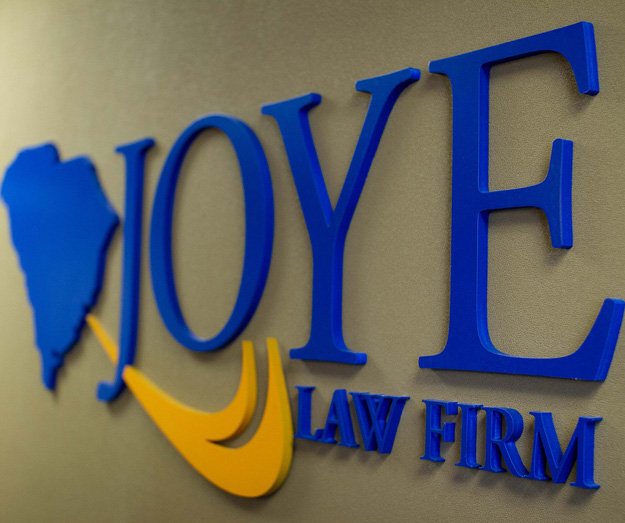All disputed workers’ compensation claims in South Carolina may be referred for mediation, if the parties agree, in hopes of avoiding the need for a formal hearing. Some complex claims or claims for permanent and total disability must go to mediation. Because workers’ comp claims are for monetary benefits and sometimes for future medical treatment, it is always better to have legal representation when discussing a disputed claim.
The workers’ comp attorneys at Joye Law Firm can help you pursue all of the benefits you are due in a South Carolina workers’ compensation claim, including representing you during mediation. It’s important to know that a big percentage of workers comp cases settle during mediation with a very high success rate of around 80%. Our South Carolina workers’ compensation lawyers have stood up for injured workers for more than 50 years. We are ready to fight for you, too.
Call us now at 888-324-3100 or fill out this online form for a no-obligation, confidential review of your claim.
What Is Workers’ Compensation Mediation?
During mediation, a neutral mediator helps all sides explore ways to resolve the conflict by using specialized communication and negotiation techniques. Mediators are trained and certified by the South Carolina Bar.
In a dispute over a South Carolina workers’ compensation claim, mediation allows the opposing sides to meet and discuss their differences informally and look for a resolution before the matter is set for a mediation hearing. Mediation is a meeting between the injured worker who is seeking workers’ comp benefits, a representative of the employer and their attorney, and a certified mediator.
The employer’s representative is required by law to have an attorney present during mediation of a workers’ comp claim. The injured worker is not required to have an attorney present but may have representation. Because the employer will always be represented by an experienced workers’ comp attorney, it is extremely important that the worker be represented to protect his or her own interests.
What Is Involved in the Mediation Process?
Workers’ compensation claims are sent to mediation to provide an opportunity for the parties involved to achieve an efficient resolution of disputed issues in the claim. The hope is that mediation can resolve disputes without the necessity of a formal hearing, which saves the time and expense of preparing for a mediation hearing. It also removes the uncertainty of a decision by a workers compensation Commission. It is impossible to predict what an individual Commissioner may decide in any particular case.
If you are employed and have been injured while on the job or become ill because of workplace conditions, you may file for workers’ compensation. Benefits include all medical expenses and a weekly check representing a portion of the amount of wages you were earning as you recover.
In cases of fatal workplace injuries, workers’ comp pays benefits to dependent family members.
If your employer or their workers’ comp insurer denies your claim, your case file will go to a Workers’ Compensation Commissioner. The Commissioner may hold a mediation hearing and decide whether you are due benefits.
Before scheduling a hearing, a Workers’ Compensation Commissioner may order any claim to mediation. The two parties to a claim – employee and employer – also may request mediation.
Mediation must be completed within 60 days of the mediation order unless otherwise agreed to by the parties.
The parties share the cost of mediation unless otherwise agreed by the parties or as otherwise ordered by the S.C. Workers’ Compensation Commission.
What Happens at a Workers’ Comp Mediation Hearing?
The mediation is typically held at the injured worker’s attorneys’ office. During mediation of a workers’ compensation claim, the mediator initially meets with all parties to initially discuss their respective positions. The parties then separate into different rooms, and the mediator meets with each side individually to relay information, offers and demands from one side to the other. Each side may present evidence, such as medical records, to support their suggestions for what should be done. Typically, emails are sent to the mediator from each side stating their positions and the basics of the claim.
All communications and information exchanged is confidential and cannot be disclosed outside of the mediation, even if the mediation is unsuccessful.
If the claim is resolved, all parties sign a workers’ comp mediation settlement agreement, setting out all the terms of the settlement. The mediator notifies the SC Workers Compensation Commission whether the claim has settled or if the parties cannot reach an agreement.
The best settlement option for your claim will depend on the facts of your case and whether you are likely to need future medical care for a work-related injury or occupational illness.
Contact Our South Carolina Workers’ Comp Lawyers
If you have a workers’ compensation claim in South Carolina that is being disputed and is headed to mediation, contact our South Carolina workers’ compensation attorneys at Joye Law Firm for help. We help injured workers seek full workers’ comp benefits so they can rebuild their lives.
Call us for a free review of your workers’ compensation claim or use our online case evaluation form. Joye Law Firm has offices with workers’ compensation attorneys in North Charleston, Columbia, Clinton, Summerville, and Myrtle Beach and represents injured workers throughout South Carolina. If you can’t come to us, we’ll come to you.







































